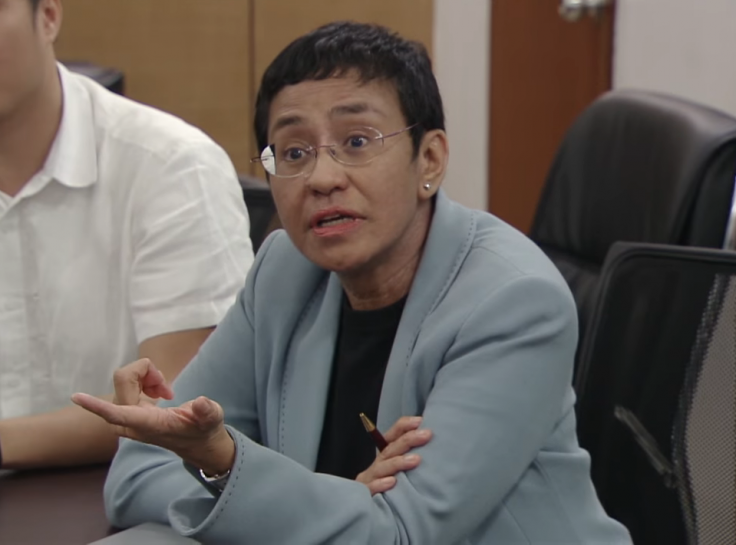As independent journalism continues to struggle in the Philippines under President Rodrigo Duterte's administration, in a jolt to press freedom, award-winning journalist Maria Ressa and her associate Santos Jr were convicted of cyber libel by a Manila court on Monday, June 15. This was the country's first such case where a journalist was found guilty.
Ressa, co-founder and the editor of Rappler, an independent online media outlet, now faces up to six years in prison. Judge Rainelda Estacio-Montesa also ordered Ressa and Santos to pay $8,000 in damages to the businessman who filed the complaint.
This was first of at least eight active cases against Ressa. However, both Ressa and her associate were out on bail and vowed to continue the fight, adding that it was a "cautionary tale" for Filipino media.
"It is a blow to us. But it is also not unexpected. We are meant to be a cautionary tale. We are meant to make you afraid. But don't be afraid. Because if you don't use your rights, you will lose them," said Ressa, a Times Person of the Year awardee, at a press conference after the verdict.

The Case
The case predates the cybercrime law in the Philippines. In 2012, Rappler published the story linking the businessman Wilfredo Keng to drug dealing, human trafficking, smuggling and even murder, citing an unspecified intelligence report. The story also linked him to the then-Supreme Court Chief Justice Maria Lourdes Sereno, who was later impeached.
Keng dismissed the claims and asked to take down the story which Rappler refused. But, in 2014, Rappler republished the story, correcting a typo and the article came under scrutiny. The case was although dismissed in 2018, Duterte's government investigators reversed the court's decision and instead recommended that Ressa and Santos be prosecuted.
The Manila Regional Trial Court judge in its verdict said that Rappler didn't provide any substantial evidence to back its story.
The National Union of Journalists of the Philippines (NUJP) called the verdict "a dark day" for all Filipinos and added that it would "kill freedom of speech and the press". "We will not be cowed. We will continue to stand our ground against all attempts to suppress our freedoms," it added.
.@ChelDiokno: This should make us even more determined to continue the fight of speaking truth to power. | via @paterno_II #HoldTheLine #CourageON #DefendPressFreedom
— Rappler (@rapplerdotcom) June 15, 2020
WATCH: https://t.co/jKoHmcsmOh
Criticism of Duterte
During the case and before, Rappler was relentless in criticizing Duterte for his war on drugs that has killed about 8,000 people. Duterte, in retaliation, sought to shut down Rappler for its alleged foreign ownership and tax evasion which the news outlet denied. Instead, Rappler exposed a pro-Duterte network that circulates fake news on social media. However, Duterte dismissed Rappler's reports and claimed them to be fake news.
In the Philippines, although press freedom is guaranteed under its constitution, under the ucrrent administration, news outlets have been under fire. In the Reporters Without Borders' press freedom index, the country ranks 136th out of 180 countries. Last month, ABS-CBN, the country's biggest broadcast network, was forced off-air following a cease and desist order after its continuous criticism of the government.
"The verdict highlights the ability of the Philippines' abusive leader to manipulate the laws to go after critical, well-respected media voices whatever the ultimate cost to the country," Phil Robertson, Deputy Asia director at Human Rights Watch, told BBC.









